Our history
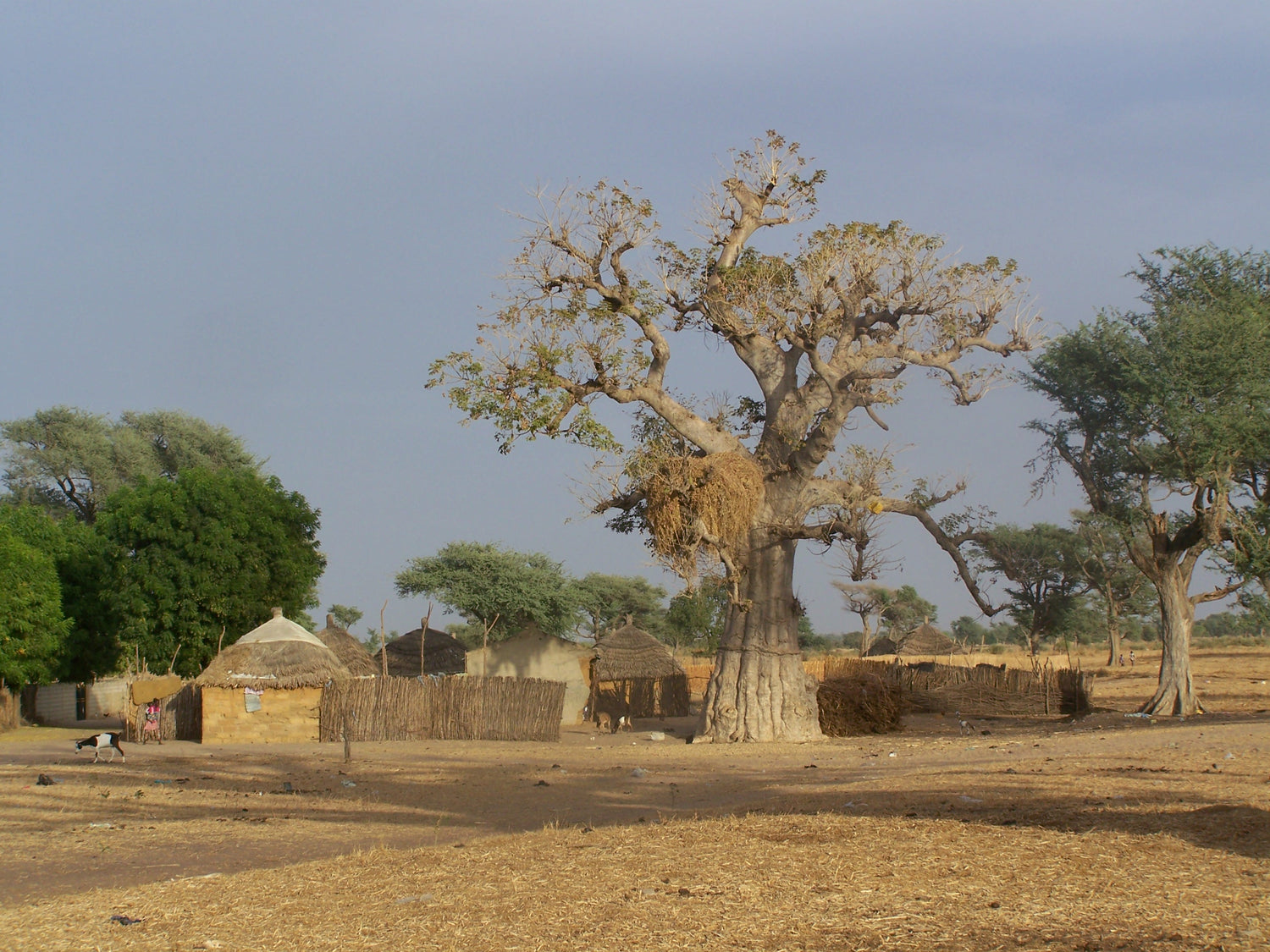
The beginning
Oléo-Sine is not a commercial company like any other. Its DNA is inclusive development. To understand its specificity we must go back well before its creation, from the journey of its founders.
It is first of all the story of an encounter.
There is Françoise, a laboratory nurse. From 1959, she participated in Senegal's first development plan in Dakar.
In 1962, she left on Red Cross trucks in Kabylia at the turn of Algerian independence, when a large part of the medical profession retreated to France.
On her return, she will then join the Women's Promotion and Development team in Paris.
Louis Fontvieille, economist, is a researcher at the CNRS. His research focuses on long-term theories and long cycles. In Montpellier he created and runs doctoral training on the Structural and Spatial Dynamics of Productive Systems, then Public Policies, Growth, Development.
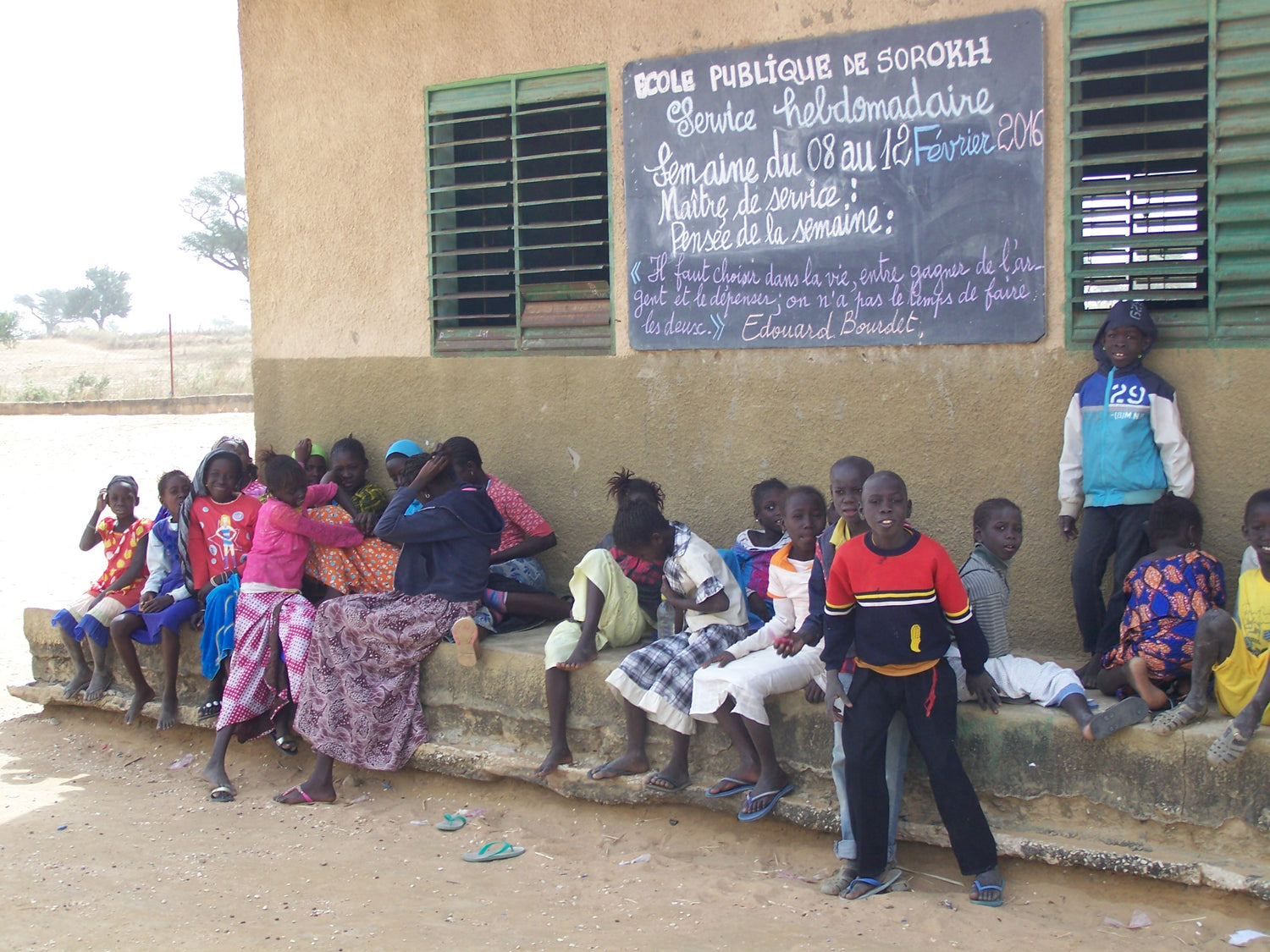
1997
They participate together in the World Commission for Popular Relief in the Hérault department and discover the village of Sorokh.
Sorokh is only 80 km from the sea, 150 from Dakar, between Fatick and Diourbel, in what is called “the dead valley”. This region is that of the Sine, which once flowed, and which drains a mixture of brackish waters in the rainy season.
Even in the 1950s, food crops, livestock and peanuts were sufficient for food. “We used to be fat”! said an old man.
Deforestation and climate change have led to a decline in rainfall and harvests. The increase in population and the drop in peanut prices have caused an exodus of young people to the city. In the village, there are still women, children and men who are too old or too weak to go to work in Dakar.
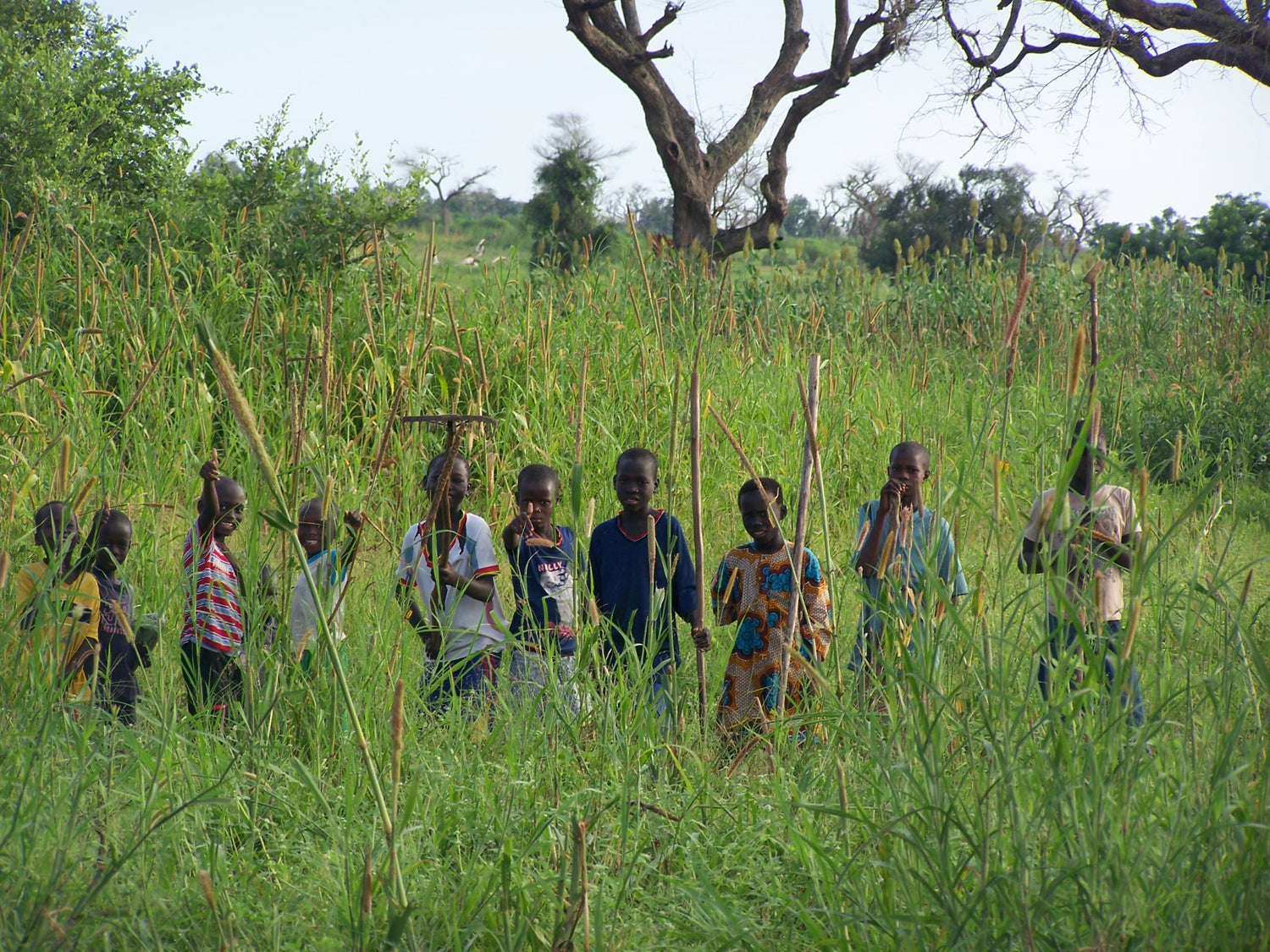
1997-2008
The village
The observation was quickly made. We had to take care of the most urgent matters: help with schooling, support in the canteen and the dispensary. Little by little, wells were financed and gardens created, offering a small mixed crop. Livestock assistance, microcredits….
None of this made it possible to settle men of working age in the village.
We had to go beyond simple assistance and think together about a way for the village to get through it itself.
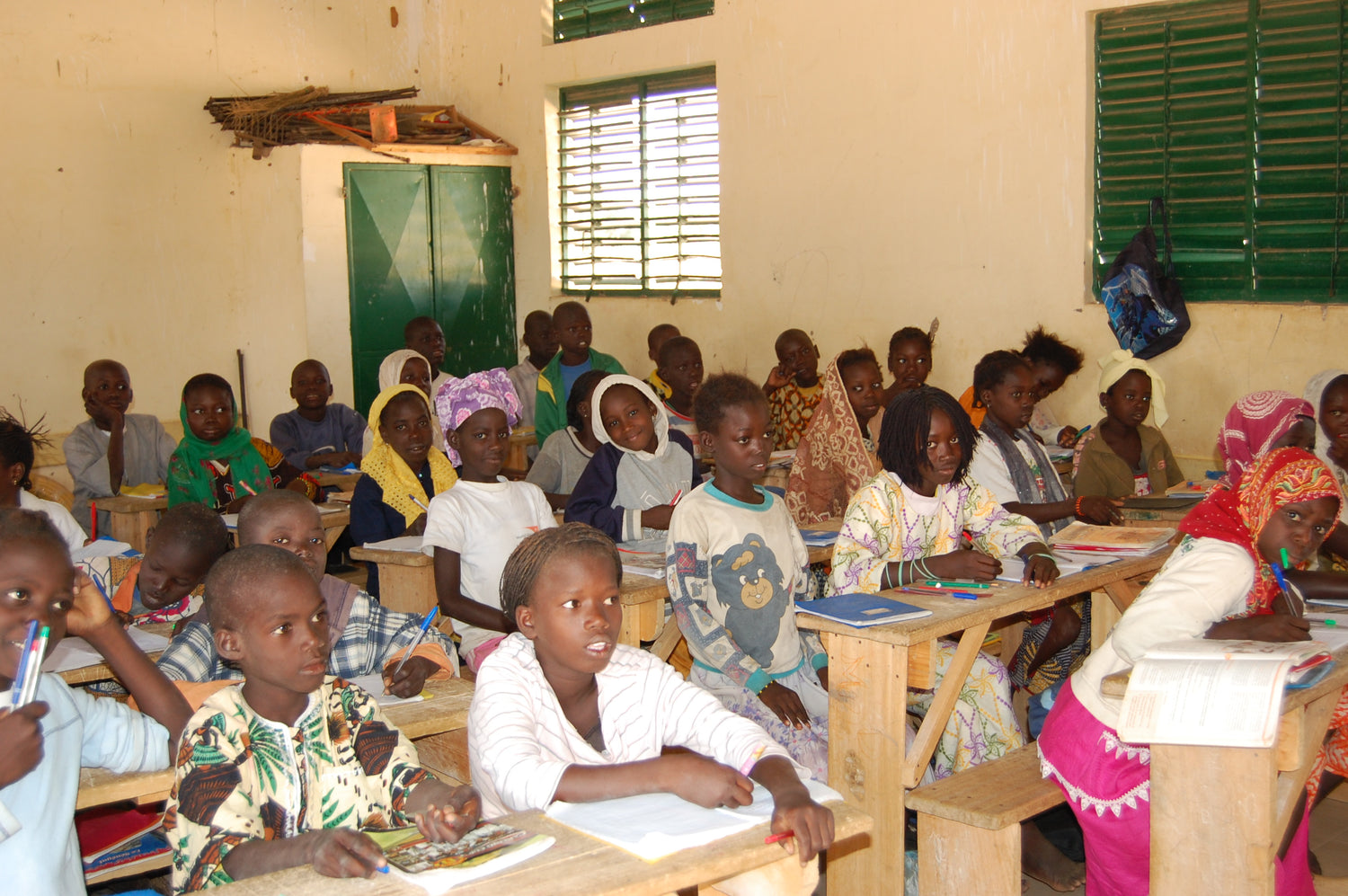
2008-2012
France-Sahel Solidarity
It is at this point of reflection that Paul Fontvieille accompanies his parents to the Village. Hotelier and restaurateur in Ariège, he has an entrepreneurial and creative temperament.
He quickly saw the potential that could be gained from using wild seeds from the surrounding bush. Informed about their abilities in cosmetology, recently exploited here, he had no difficulty in convincing his entourage and the villagers to start extracting oils, starting with the baobab. And all the more so since we found forgotten ancestral virtues there.
It was in 2008, after this trip, that the Association Solidarité France Sahel was created, with a few friends. The aim was to move away from assistance with the focus of support for family farming, the development of artisanal activities and reforestation to combat climate change and the desertification process.
Extracting oil requires a press, capable of pressing baobab seeds which are extremely hard. We had to find funding, order the press and a generator (there is no electricity in the village), and fit out a building. Nearly €40,000 was invested by the association for this project.
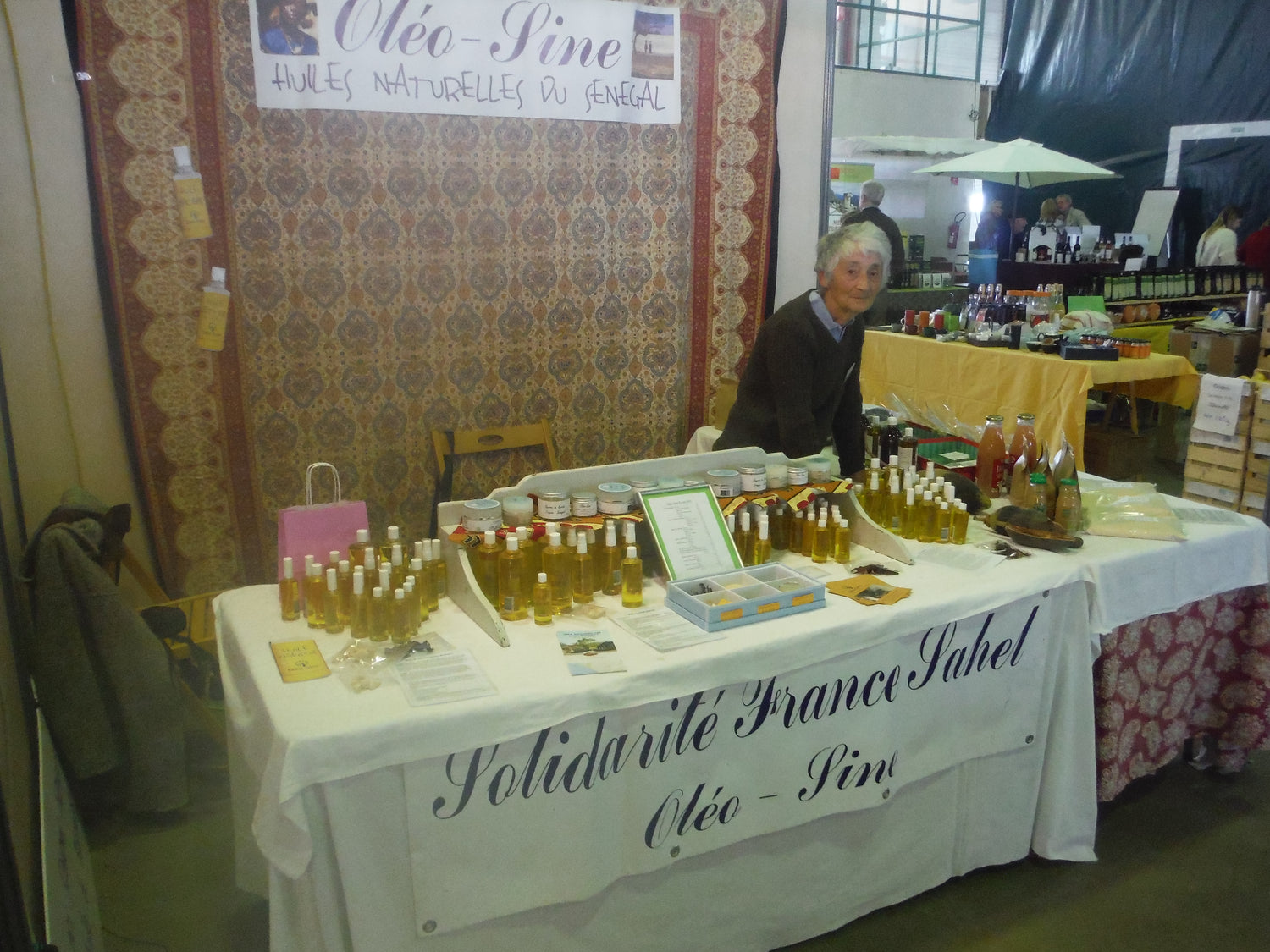
2012-2020
SPE and Oleo-sine
An SARL under Senegalese law was created in Senegal. It obtained Free Export Company Status, which made it possible to purchase all equipment tax-free. The press was installed in January 2012, and the first exports made in July 2012.
At the same time, the SARL Oléo-Sine was created in France to ensure marketing. An Internet sales site was created and all the association's volunteers mobilized to ensure sales at trade fairs and markets. Steps have been taken to ensure the organic certification of all products in Senegal first and then in France.
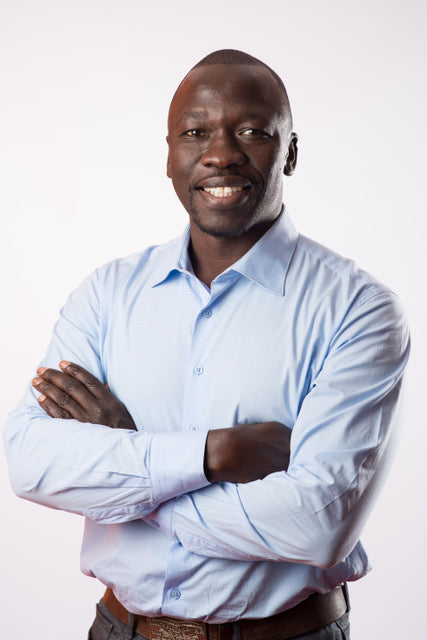
Since 2020
Ten years later, Louis and Françoise are old (83 and 87 years old!).
The operation of Oléo-Sine weighs more and more heavily on their shoulders and their son Paul is unable to take over. For several years they had been looking for someone to take over, with the guarantee that the orientation which governed its creation would be preserved. All development expert friends were contacted.
Ultimately, the solution came from a chance encounter. Mamour Seck, quality engineer in the food industry, was looking for hibiscus flowers to produce fruit juices based on African products. Discussions quickly shifted to development in Senegal and in particular the village of Sorokh. He went there and met the association's partners. Finally, in July 2020, management of Oléo-Sine was transferred to it.
New areas of development have been set: establishment of a hibiscus flower and moringa leaf production unit in Sorokh and soon a baobab powder production unit.
By nature, Oléo-Sine has always adopted a fair trade perspective. She has always favored the balance of SPE and the fair remuneration of producers. Since 2020, it has devoted 3% of its turnover to the development of productive activities and the reforestation of the Sine valley.
